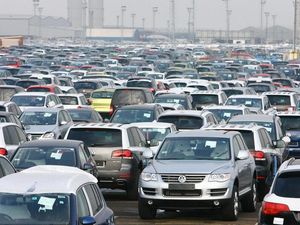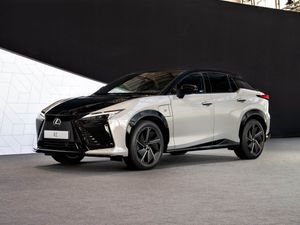New car average CO2 emissions hit highest level in five years
Decline in diesel and new WLTP standards blamed for reported rise in carbon dioxide

The average CO2 emissions of new cars sold in the UK is now 128.3g/km – the highest level in five years.
The figure, taken from Department for Transport data on quoted emissions figures, shows that cars now emit on average of 9.1g/km more than they did in 2016, when a record low of 119.2g/km was recorded.
It marks the end of 20 years of consistent decline in reported CO2 emissions from cars. The average level has not been this high since 2013, when average emissions were 128.8g/km.
A decline in the sale of diesel models has been blamed for the rise in emissions. Diesel cars typically emit more soot, nitrogen oxides and other local pollutants than petrol models – but produce significantly less CO2. A pushback on diesel models, triggered by Volkswagen’s dieselgate scandal of 2015, saw sales drop by a remarkable 31 per cent in the UK last year, with many buyers opting for petrol models instead.
The increase can also be attributed in part to new WLTP emissions regulations. The tougher system of classifying a car’s fuel economy and carbon dioxide emissions came into force in September, and under new testing procedures many manufacturers were forced to reclassify their cars with new, higher CO2 figures.
The rise in CO2 has happened despite a large increase in the number of ultra-low emissions vehicles, which now make up three per cent of the UK market. It also goes against research from the Society of Motor Manufacturers and Traders (SMMT), which shows that the market’s new cars are 12.6 per cent more efficient than their predecessors.
Mike Hawes, chief executive of the SMMT, said: “The industry shares the government’s vision of a low carbon future and is investing to get us there – but we can’t do it overnight, nor can we do it alone.
“The anti-diesel agenda has set back progress on climate change, while electric vehicle demand remains disappointingly low amid consumer concerns around charging infrastructure availability and affordability.
“To accelerate fleet renewal, motorists must have the confidence to invest in the cleanest cars for their needs – however they are powered.”





